College football’s Swedish flavor
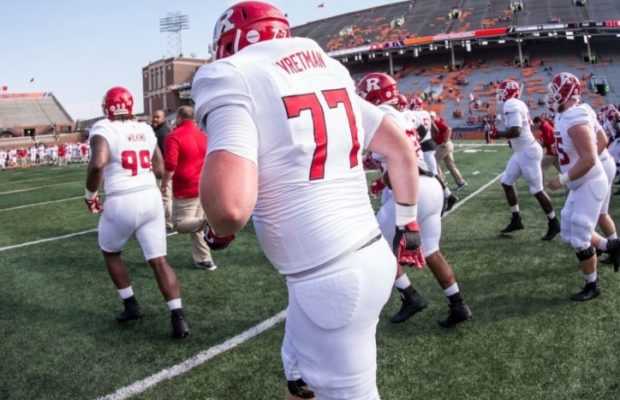
Just a handful of years ago, Sam Vretman was a teenager honing his hockey skills in Upplands Väsby, Sweden.
These days, he’s a freshman playing college football in the Big Ten.
“If somebody actually told me I was going to play football in the U.S., especially in the Big Ten, I would have probably laughed,” said Vretman, an offensive lineman at Rutgers. “At the moment, I didn’t really have plans to play football.”
When he was 16, a friend of Vretman’s encouraged him to start playing football, setting in fast motion a passion for the sport that started with the Arlanda Jets program in Sweden and led him to high schools in Idaho and Connecticut before embarking as a student-athlete at Rutgers this fall.
He’s not alone, as the Swedish impact on college football is growing.
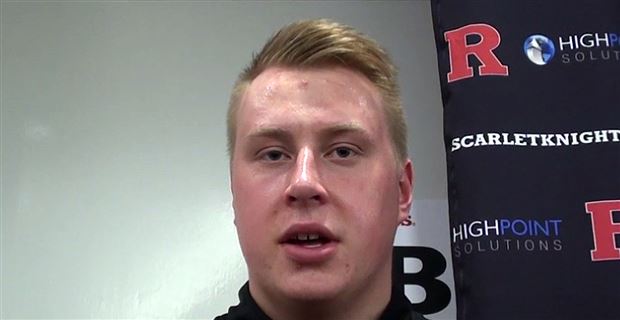
Sam Vretman, offensive lineman for Rutgers University.
Jordan Genmark-Heath, an Arlanda Jets teammate of Vretman’s, is a freshman safety from Stockholm making contributions to a resurgent Notre Dame program. Other Division-I players include Kevin Dillman (Ystad), who originally committed to play quarterback at Nebraska before settling in as a defensive end at North Texas, and Oscar Nevermann (Stockholm), who started his career at Wyoming before moving on to be a running back at North Dakota. And a pair of Swedish offensive linemen, David Hedelin (Purdue) and Sebastian Johansson (Marshall), each had NFL tryouts in 2016 before returning home to play football.
“It was always the goal, ever since the American coaches told me I had a chance,” Nevermann said. “But I’d never thought I’d go to two highly competitive institutions like I ended up doing.”
Genmark-Heath tweeted in July, “Who would have thought a kid from Sweden would make it this far?” with pictures of him playing for the Arlanda Jets, his new locker at Notre Dame and picture day for the Fighting Irish.
For Nevermann, it started by playing a variety of sports growing up.
“I tried everything from soccer to handball to land hockey, golf and table tennis,” he said. “Then my brother started playing football, and me as a jealous little baby brother wanted to try it, too. I think I realized pretty quick that I had an advantage.”
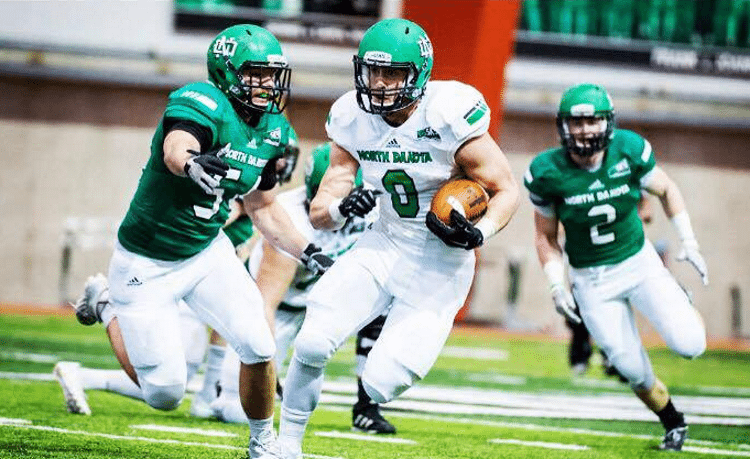
Oscar Nevermann in action
That advantage came with a caveat. Nevermann pointed out that not many of the athletic kids go out for football in Sweden as they are drawn more to bigger sports like soccer and hockey.
Primarily a quarterback in Sweden, Nevermann went on to play for the Swedish national team and spent two years at Wyoming, where he was moved from running back to linebacker. He landed at North Dakota in large part because of William James, a childhood friend who played on the same club team in Sweden and was a defensive back at North Dakota.
“When we ended up being split up for college, we were constantly calling each other talking about how either he should transfer or me,” Nevermann said. “I ended up making the move after the coaching change at Wyoming, and we ended up living together in Grand Forks.”
Vretman, who is listed at 6-6, 305, was physical when he was a hockey player. That carried over to the football field, and he was nominated to attend a football camp in Florida in 2014, which led him to apply to be an exchange student. He played at Rocky Mountain High School in Meridian, Idaho before he transferred to Cheshire Academy in Cheshire, Conn.
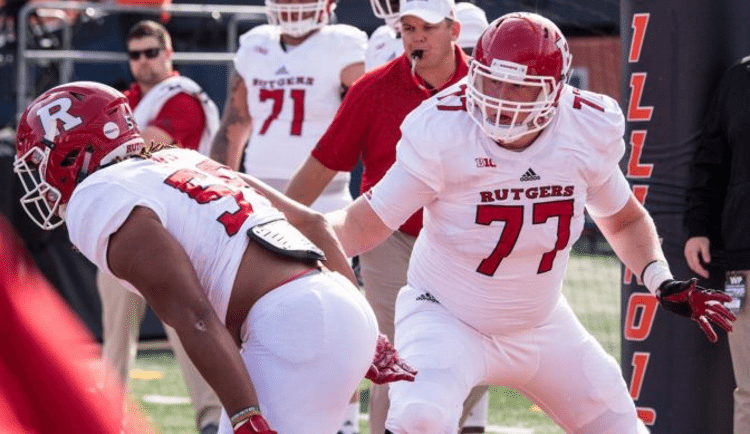
Sam Vretman Photo: Ben Solomon/Rutgers Athletics
Just as he was adjusting to life in the States, college recruiters started to take notice of the big Swede opening holes for running backs and protecting the quarterback in Idaho. In turn, Vretman started to realize he could play football at an American college.
“My first year coming over, when I was in Idaho, everything was new to me: the language, the school system, the sport and everything,” Vretman said.
Nevermann’s biggest adjustment?
“The food for sure. Grease on top of grease, with some fries to the side has never been my cup of tea,” he said.
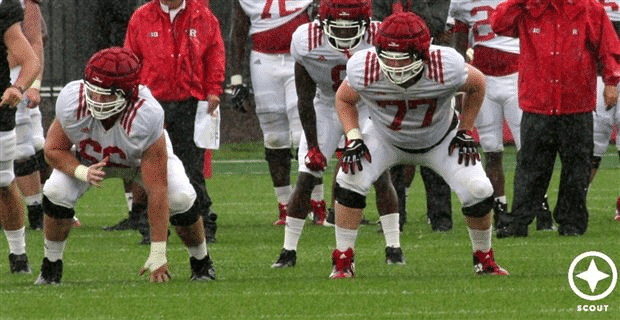
Sam Vretman lines up at left tackle (Photo: Sam Hellman / Scarlet Report, Scout.com)
As for the football, both players said American football is more serious and competitive than the club football they grew up playing in Sweden.
“Listen to the coaches and players that have been across the pond, and do not spend too much time in the weight room; get out and play the sport,” Nevermann advised.
Vretman added:
“I think the opportunities to get over here and to get exposure is the biggest thing. There are a lot of athletes in Sweden who could definitely do what I’m doing.”
Link to original story in umgasmagazine.com
Reprinted by permission